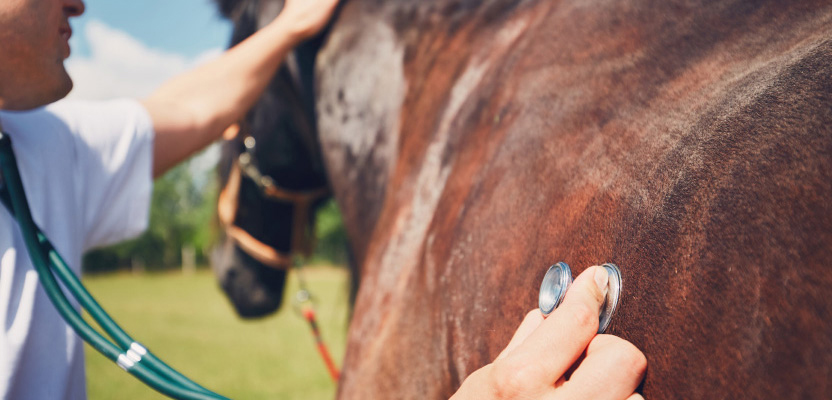Once you have chosen the horse you wish to purchase, there are a few essential steps to take before the final handshake. These may sound overly cautious or an unnecessary expense, but they will protect your investment in your horse in the long term. The impetus is upon you to investigate the soundness of the horse at purchase.
A horse can live over thirty years and each year accumulates livery, feed and vet costs. The last thing you will want is to believe you have found your ‘forever horse’ and then discover serious faults. Worse, you might find you have a horse that is impossible to sell on.
You can never guarantee that you are purchasing a perfectly sound horse. You might buy a horse that you have had on loan for five years only the following day to have a problem. However, there are ways of reducing the risk.
Trial riding sessions
You should ride the horse at least twice before making the final decision. We recommend that you read about riding at a viewing.
Health check
You should have the horse checked by a vet. A vet check will probably cost you between £75 and £250 depending on the extent to which the vet examines the horse.
There are 5 levels of check: the more you have, the more expensive the fee.
The Level 1 check will ensure that the horse stands square and has a healthy heart and lungs, muscular development, spine and suppleness. The vet will examine the horse in the stable and in walk only.
During the Level 2 test, the vet will also examine the horse in trot, to ensure it has no restrictions to its movement in this gait, and he may also check the horse’s flexion by holding up the horse’s limbs before movement.
Level 3 will examine its heart and lungs after strenuous exercise.
At Level 4, the horse will rest after exercise and have its heart tested further to ensure heart rate has returned to normal level. Blood tests will also be taken.
At Level 5, the horse will be exercised for a second time, to test stamina.
The vet will either pass or fail the horse according to his findings. He may comment on the significance of any problems found and advise on further tests.
Vet checks can't pick up all problems, so you should also obtain warranties from the seller in a purchase and sale agreement for a horse as to prior problems.
Another reason to have a vet check is that your insurance premiums will be lower if the horse has been certified with a clean bill of health.
Trial periods
You should request a trial period of at least two weeks before the sale completes. You may need to put down a deposit, which may be non-refundable. Alternatively, you could take the horse on loan for a longer period, perhaps with a repayment of some of the loan amount if you decide to buy.
A horse can pass a Level 5 vetting but still have serious behavioural issues. A trial will safeguard you against buying a healthy horse with a vice.
Every horse needs a ‘settling down period’. We discuss this in an article on settling a horse into a new home. If issues are severe and preventing you from making progress, then you may return the horse to the owner.
Warranties
You should use a horse sale agreement that includes warranties by the seller as to the condition of the horse’s health, according to the owner’s knowledge at point of purchase. The owner should disclose any preconditions the horse has, and when its last wormer and vaccination were taken. Written warranties are the only way a buyer can seek damage from a seller if the horse is unhealthy. Don't rely on verbal assurances only.
The passport should record vet visits with vet signatures, although many will not. You can't rely on a passport as a history of health problems.
The owner should not, however, provide any guarantees about the horse’s aptitude in a particular discipline. For example, the contract should not state that the horse is ‘a good hunter’ since the definition is subjective and therefore difficult to prove.
The owner may provide a list of affiliated events where the horse has competed and the horse's placing. This can reassure you as to experience. Be wary of anyone who is selling a horse at a premium price because of its grading or BHS points unless there is evidence that they exist.
In summary, hard facts evidenced or warranted in a written contract can be used to create a sound case in a court of law, but opinions and sales talk cannot. Use a comprehensive sale agreement, such as the one Net Lawman sells.
Further information and useful documents
This article is part of a series that offers advice on purchasing a horse. You might be interested in reading about buying a horse privately as many of the tips apply to auctions. Start by finding out what you need to consider before the viewing.
We cannot overemphasise the importance of recording a sale with a good contract. You should look at our collection of agreements, which provide an inexpensive way of obtaining some protection from buying a horse or pony with undisclosed problems.

